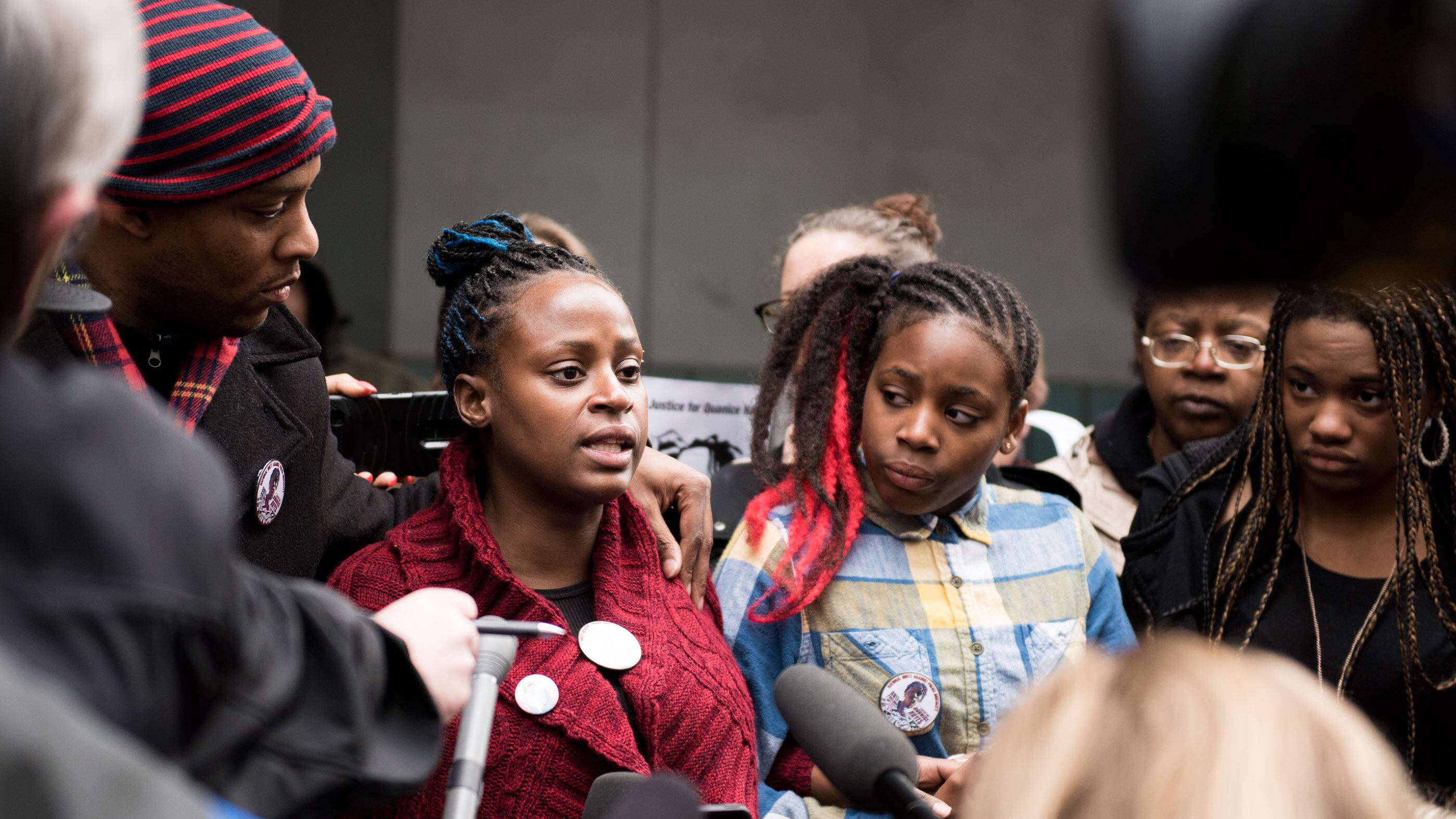The city of Portland today agreed to pay a $1.5 million settlement and $595,081 in attorneys' fees to the family of Quanice Hayes, a 17-year-old shot and killed Feb. 9, 2017, by Portland Police Officer Andrew Hearst.
Police sought Hayes in connection with an alleged carjacking earlier that day and found him in front of a home at 8300 NE Hancock St.
Hearst shot Hayes three times as Hayes crouched in front of the home.
A Multnomah County grand jury ruled the shooting was justified, but in June 2018, the Hayes family filed a wrongful death lawsuit against the city,
Ashlee Albies, an attorney who represents the Hayes family, said the family's goal in pursuing litigation was to find out more about the circumstances surrounding Hayes' death.
"Our goal was to give the family information and a choice, and I think we did that," Albies said. "Money can't bring someone back."
"We really litigated this case to find out what happened, and we feel like we got all of the answers that we could," Albies added.
The next step, Albies says, is for the Portland City Council to vote to approve the settlement on March 10.
The mayor's office issued a statement regarding the settlement:
"The parties to the Quanice Hayes civil litigation notified the court that a settlement has been reached. Under the settlement, the plaintiffs will receive $1.5 million in the form of a structured settlement requested by the plaintiffs, and $595,081 for the plaintiffs' attorneys' fees and costs," the mayor's office said. "The settlement is expected to go to City Council for consideration on the afternoon of March 10."
Officers found a replica gun near Hayes after Hearst shot him, but the issue of how much of a threat Hayes posed to officers was never resolved in court.
If the case had gone to trial, Albies says, the crux of the discussion would have been whether Hayes was reaching for his waistband when Hearst fired his rifle or Hayes was lowering himself to the ground as the officers had instructed him to do.
Albies and co-counsel Jesse Merrithew had argued that Hayes' death reflected a pattern of biased policing against Black Portlanders.


